Turn! Turn! Turn! (To Everything There Is A Season)
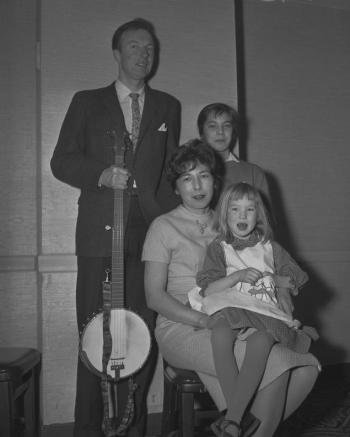
Additional verses by Toshi Seeger
Strofe aggiuntive di Toshi Seeger
Nel 1954 la moglie di Pete Seeger scrisse cinque divertenti strofe della canzone per cantarla ai due figli.
Toshi Seeger è morta pochi mesi prima del marito, nel luglio dell'anno scorso, a 91 anni, mancando di poco i 70 anni di matrimonio.
Strofe aggiuntive di Toshi Seeger
Nel 1954 la moglie di Pete Seeger scrisse cinque divertenti strofe della canzone per cantarla ai due figli.
Toshi Seeger è morta pochi mesi prima del marito, nel luglio dell'anno scorso, a 91 anni, mancando di poco i 70 anni di matrimonio.
A time for work, a time for play
(Continues)
(Continues)
2014/1/30 - 23:37
The Ghost Of Tom Joad

... non puoi parlare di bruce springsteen citando Vasco Rossi, ti prego...
Andrea 2014/1/30 - 18:20
On n'est pas des saints

On n'est pas des saints
Chanson française – On n'est pas des saints – Léo Ferré – 1967
Je n'avais pas oublié, mon ami Marco Valdo M.I., dit Lucien l'âne en souriant de son piano à mastiquer le son, et je me préparais à te rappeler ta promesse, car placer une nouvelle chanson de Léo Ferré dans les Chansons contre la Guerre, c'est un grand moment à chaque fois. Et puis, une chanson avec un pareil titre... « On n'est pas des saints »... Ça change du sirupeux évangélique dont on bassine nos jours et nos nuits. Jusqu'à la nausée... Imagine que ces gens-là, les mêmes que chantait Jacques Brel (Chez ces gens-là, on ne pense pas, Monsieur, on prie...) ont réussi à mettre des croix partout, jusque sur le dos des ânes... C'est tout dire. Laisse-moi te révéler une image qui me vient à l'esprit : le Vatican avec son Église, c'est un boa autour du cou de l'Europe... Il l'étouffe... La seule question... (Continues)
Chanson française – On n'est pas des saints – Léo Ferré – 1967
Je n'avais pas oublié, mon ami Marco Valdo M.I., dit Lucien l'âne en souriant de son piano à mastiquer le son, et je me préparais à te rappeler ta promesse, car placer une nouvelle chanson de Léo Ferré dans les Chansons contre la Guerre, c'est un grand moment à chaque fois. Et puis, une chanson avec un pareil titre... « On n'est pas des saints »... Ça change du sirupeux évangélique dont on bassine nos jours et nos nuits. Jusqu'à la nausée... Imagine que ces gens-là, les mêmes que chantait Jacques Brel (Chez ces gens-là, on ne pense pas, Monsieur, on prie...) ont réussi à mettre des croix partout, jusque sur le dos des ânes... C'est tout dire. Laisse-moi te révéler une image qui me vient à l'esprit : le Vatican avec son Église, c'est un boa autour du cou de l'Europe... Il l'étouffe... La seule question... (Continues)
On n'est pas des saints
(Continues)
(Continues)
Contributed by Marco Valdo M.I. 2014/1/30 - 17:46
Come Savonarola

[2013]
Singolo : Come Savonarola
Singolo : Come Savonarola
Non hai fatto un grande affare
(Continues)
(Continues)
2014/1/30 - 15:33
Plegaria a un labrador
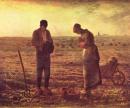
ΠΡΟΣΕΥΧΗ Σ´ΕΝΑ ΧΩΡΙΚΟ
(Continues)
(Continues)
Contributed by Gian Piero Testa 2014/1/30 - 13:46
E io ci sto
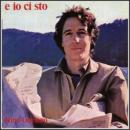
Version française – ET MOI, J'Y SUIS – Marco Valdo M.I. – 2014
Chanson italienne – E io ci sto – Rino Gaetano – 1980
Texte et musique de Rino Gaetano
Album: "E io ci sto"
Ah, Lucien l'âne mon ami, cette canzone de Rino Gaetano, me plaît vraiment et même, pour plusieurs raisons. Bien évidemment, la canzone elle-même et son auteur, son interprète, bref, son chantauteur, puisqu'il s'agit d'une seule et même personne. Mais il en est d'autres...
Oh, oh..., dit Lucien l'âne en secouant son encolure comme s'il se mettait subitement à danser le rock... Et tu pourrais m'en dire de ces plusieurs raisons...
Certainement et je vais le faire à l'instant. Une de ces fortes raisons, c'est que cette chanson est en quelque sorte une d'évocation d'un des aspects de la Guerre de Cent Mille Ans, cette guerre que les riches font aux pauvres afin de maintenir leur domination, d'accroître leurs richesses, d'étendre... (Continues)
Chanson italienne – E io ci sto – Rino Gaetano – 1980
Texte et musique de Rino Gaetano
Album: "E io ci sto"
Ah, Lucien l'âne mon ami, cette canzone de Rino Gaetano, me plaît vraiment et même, pour plusieurs raisons. Bien évidemment, la canzone elle-même et son auteur, son interprète, bref, son chantauteur, puisqu'il s'agit d'une seule et même personne. Mais il en est d'autres...
Oh, oh..., dit Lucien l'âne en secouant son encolure comme s'il se mettait subitement à danser le rock... Et tu pourrais m'en dire de ces plusieurs raisons...
Certainement et je vais le faire à l'instant. Une de ces fortes raisons, c'est que cette chanson est en quelque sorte une d'évocation d'un des aspects de la Guerre de Cent Mille Ans, cette guerre que les riches font aux pauvres afin de maintenir leur domination, d'accroître leurs richesses, d'étendre... (Continues)
ET MOI, J'Y SUIS
(Continues)
(Continues)
Contributed by Marco Valdo M.I. 2014/1/29 - 20:41
To My Old Brown Earth
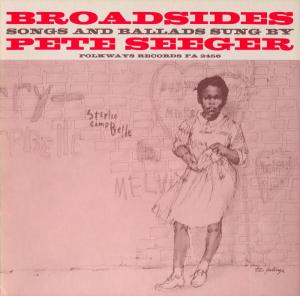
Words and Music by Pete Seeger (1958)(c) 1964 (renewed) by Stormking Music Inc.
1964
Broadsides - Songs and Ballads
1964
Broadsides - Songs and Ballads
To my old brown earth
(Continues)
(Continues)
Contributed by donquijote82 2014/1/29 - 19:19
Song Itineraries:
War on Earth
The Torn Flag
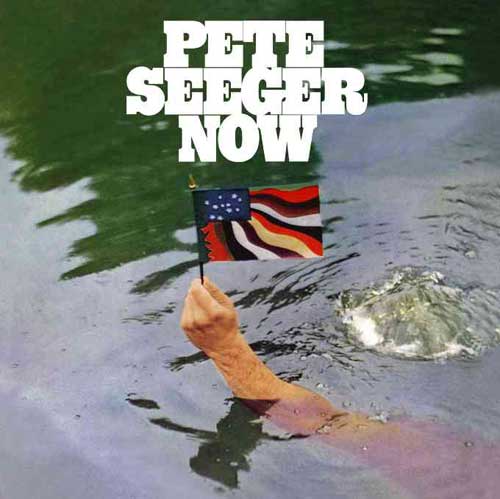
Words and Music by Pete Seeger (1969)TRO – © 1970 Melody Trails, Inc., New York, NY
1970
Pete Seeger Now
(Malcolm X once debated another black man as to whether they could call themselves Americans. “I’m not an American,” said Malcolm, “Why do you think you are?” “I’m an American because I was born here,” said the other. “well, you could put a shoe in an oven and that wouldn’t make it a biscuit,” was Malcolm’s retort. I’m afraid I have no such choice. My light-skinned ancestors participated fully in the decisions, good and bad, which formed this nation. I’ve spent a lifetime fighting the blacklisters who tried to make me feel like an outcast in my own home. “I had an uncle who wrote a poem with the lines: “I have a rendezvous with death / At midnight in some flaming town. . .” So I made some new verses. I don’t have a regular tune for it yet — I kind of chant it to an improvised modal melody.” — Pete Seeger)
1970
Pete Seeger Now
(Malcolm X once debated another black man as to whether they could call themselves Americans. “I’m not an American,” said Malcolm, “Why do you think you are?” “I’m an American because I was born here,” said the other. “well, you could put a shoe in an oven and that wouldn’t make it a biscuit,” was Malcolm’s retort. I’m afraid I have no such choice. My light-skinned ancestors participated fully in the decisions, good and bad, which formed this nation. I’ve spent a lifetime fighting the blacklisters who tried to make me feel like an outcast in my own home. “I had an uncle who wrote a poem with the lines: “I have a rendezvous with death / At midnight in some flaming town. . .” So I made some new verses. I don’t have a regular tune for it yet — I kind of chant it to an improvised modal melody.” — Pete Seeger)
At midnight in a flaming angry town
(Continues)
(Continues)
Contributed by donquijote82 2014/1/29 - 19:13
Now Is the Time for an Iron Hand
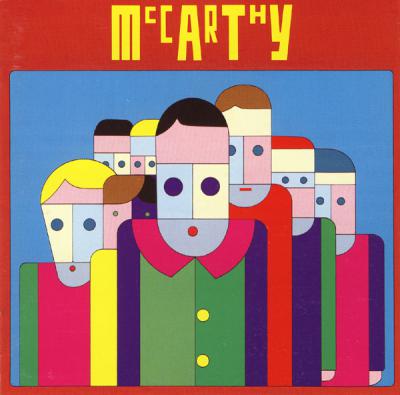
[1990]
Nell’album significativamente intitolato “Banking, Violence And The Inner Life Today”
In copertina un dipinto intitolato “Die Arbeitsmänner” (“I lavoratori”) dell’artista costruttivista tedesco Franz Wilhelm Seiwert (1894-1933).
“The iron hand of the Iron Lady”, quella della guerra delle Malvinas/Falklands, quella della repressione violenta degli scioperi operai…
Un album che è un bilancio dei lunghi anni del “thatcherismo” (1979-1990) e del suo funesto lascito.
Al proposito si veda anche Iron Hand dei Dire Straits.
Nell’album significativamente intitolato “Banking, Violence And The Inner Life Today”
In copertina un dipinto intitolato “Die Arbeitsmänner” (“I lavoratori”) dell’artista costruttivista tedesco Franz Wilhelm Seiwert (1894-1933).
“The iron hand of the Iron Lady”, quella della guerra delle Malvinas/Falklands, quella della repressione violenta degli scioperi operai…
Un album che è un bilancio dei lunghi anni del “thatcherismo” (1979-1990) e del suo funesto lascito.
Al proposito si veda anche Iron Hand dei Dire Straits.
Those who would rule before us wanted to be kind
(Continues)
(Continues)
Contributed by Bernart Bartleby 2014/1/29 - 16:05
Peace Pin Boogie

[1963]
Parole e musica di Woody Guthrie
Interpretata da Kurt Elling (cantante jazz americano) nel disco collettivo “Note Of Hope: A Celebration Of Woodie Guthrie” del 2011.
Interpretata da Pete Seeger in “Pete Remembers Woody” del 2012
Parole e musica di Woody Guthrie
Interpretata da Kurt Elling (cantante jazz americano) nel disco collettivo “Note Of Hope: A Celebration Of Woodie Guthrie” del 2011.
Interpretata da Pete Seeger in “Pete Remembers Woody” del 2012
Went to kiss my sweetie, same as before;
(Continues)
(Continues)
Contributed by Bernart Bartleby 2014/1/29 - 14:12
Or Else! (One-a These Days)

[2006?]
Parole di Pete Seeger, David Bernz e A.N. Onymous (?).
Musica di Pete Seeger.
Trovo la canzone nell’album “At 89” del 2008.
“Verrà il giorno in cui la nostra scuola riceverà i soldi di cui ha bisogno, mentre la Marina militare dovrà mettersi a vendere le torte per comprarsi una nave da guerra… Verrà il giorno in cui Johnny riceverà i soldi di cui ha bisogno per la sua salute, mentre l’Aeronautica militare dovrà organizzare una lotteria per comprarsi un bombardiere…”
Parole di Pete Seeger, David Bernz e A.N. Onymous (?).
Musica di Pete Seeger.
Trovo la canzone nell’album “At 89” del 2008.
“Verrà il giorno in cui la nostra scuola riceverà i soldi di cui ha bisogno, mentre la Marina militare dovrà mettersi a vendere le torte per comprarsi una nave da guerra… Verrà il giorno in cui Johnny riceverà i soldi di cui ha bisogno per la sua salute, mentre l’Aeronautica militare dovrà organizzare una lotteria per comprarsi un bombardiere…”
One-a these days (ONE-A THESE DAYS)
(Continues)
(Continues)
Contributed by Bernart Bartleby 2014/1/29 - 11:32
Quite Early Morning

Words and Music by Pete Seeger (1969)
Per Pete Seeger
Alessandro Portelli il manifesto 29.1.2014
“Dicono che l’umanità non sopravviverà a lungo, ma io vorrei sapere che cos’è che li fa essere così sicuri. L’ora più buia è sempre quella prima dell’alba, si sta facendo mattino, e io so che possiamo ancora avere singing tomorrows”, domani fatti di musica, “giorni cantati”. Così cantava Pete Seeger, e questa è stata la sua lezione per quasi ottant’anni di musica e di impegno.
Nel corso della sua vita, Pete Seeger ha cantato le canzoni dei minatori e degli operai (“Which Side Are You On?”) , gli spiritual di lotta del movimento per i diritti civili (“We Shall Overcome”), la protesta contro la guerra del Vietnam (“Waist Deep In The Big Muddy”), la mobilitazione per la salvezza dell’aria e dell’acqua della sua terra (“My Dirty Stream”); ha composto memorabili canzoni di libertà e speranza... (Continues)
Per Pete Seeger
Alessandro Portelli il manifesto 29.1.2014
“Dicono che l’umanità non sopravviverà a lungo, ma io vorrei sapere che cos’è che li fa essere così sicuri. L’ora più buia è sempre quella prima dell’alba, si sta facendo mattino, e io so che possiamo ancora avere singing tomorrows”, domani fatti di musica, “giorni cantati”. Così cantava Pete Seeger, e questa è stata la sua lezione per quasi ottant’anni di musica e di impegno.
Nel corso della sua vita, Pete Seeger ha cantato le canzoni dei minatori e degli operai (“Which Side Are You On?”) , gli spiritual di lotta del movimento per i diritti civili (“We Shall Overcome”), la protesta contro la guerra del Vietnam (“Waist Deep In The Big Muddy”), la mobilitazione per la salvezza dell’aria e dell’acqua della sua terra (“My Dirty Stream”); ha composto memorabili canzoni di libertà e speranza... (Continues)
Don't you know it's darkest before the dawn
(Continues)
(Continues)
2014/1/29 - 10:24
Song of the World’s Last Whale
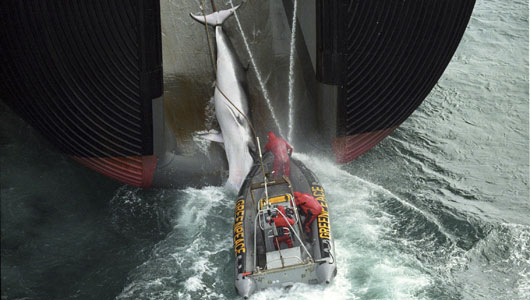
[1972]
Parole e musica di Pete Seeger
Trovo la canzone nell’album “At 89” del 2008.
Restando sul tema, consiglio caldamente il riascolto e la rilettura del testo della canzone Last Great American Whale di un altro gigante recentemente scomparso, il vecchio Lou Reed…
Parole e musica di Pete Seeger
Trovo la canzone nell’album “At 89” del 2008.
Restando sul tema, consiglio caldamente il riascolto e la rilettura del testo della canzone Last Great American Whale di un altro gigante recentemente scomparso, il vecchio Lou Reed…
I heard the song
(Continues)
(Continues)
Contributed by Bernart Bartleby 2014/1/29 - 09:26
Song Itineraries:
War on Earth
Throw Away That Shad Net (How Are We Gonna Tomorrow?)
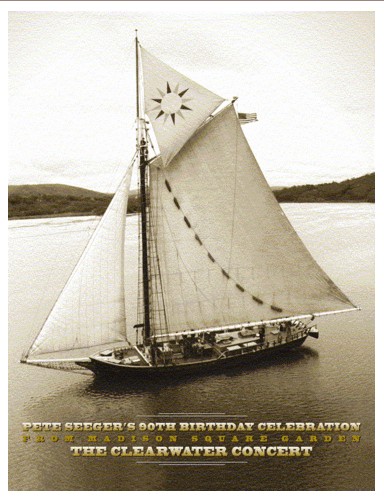
[1976]
Parole e musica di Pete Seeger.
Trovo la canzone nell’album “At 89” del 2008.
I policlorobifenili (PCB) sono composti organici che furono largamente impiegati a partire dal secondo dopoguerra nei liquidi isolanti e refrigeranti necessari al funzionamento di trasformatori, condensatori e motori elettrici. Tra il 1947 ed il 1977 gli enormi impianti di produzione di energia elettrica della General Electric situati a Fort Edward, New York, riversarono nelle acque dell’Hudson centinaia di tonnellate di PCB che andarono a sedimentarsi sul fondo del fiume e contaminarono irreparabilmente l’acqua e la fauna ittica, a tal punto che la specie più diffusa, un piccolo merluzzo chiamato “Tomcod”, nell’arco di soli 50 anni ha modificato il proprio apparato genetico in modo da resistere all’avvelenamento… Buon per lui, che però sta soltanto alla base della catena alimentare, mentre alla sommità... (Continues)
Parole e musica di Pete Seeger.
Trovo la canzone nell’album “At 89” del 2008.
I policlorobifenili (PCB) sono composti organici che furono largamente impiegati a partire dal secondo dopoguerra nei liquidi isolanti e refrigeranti necessari al funzionamento di trasformatori, condensatori e motori elettrici. Tra il 1947 ed il 1977 gli enormi impianti di produzione di energia elettrica della General Electric situati a Fort Edward, New York, riversarono nelle acque dell’Hudson centinaia di tonnellate di PCB che andarono a sedimentarsi sul fondo del fiume e contaminarono irreparabilmente l’acqua e la fauna ittica, a tal punto che la specie più diffusa, un piccolo merluzzo chiamato “Tomcod”, nell’arco di soli 50 anni ha modificato il proprio apparato genetico in modo da resistere all’avvelenamento… Buon per lui, che però sta soltanto alla base della catena alimentare, mentre alla sommità... (Continues)
Throw away that shad net, get rid of hook and line.
(Continues)
(Continues)
Contributed by Bernart Bartleby 2014/1/29 - 09:13
Song Itineraries:
War on Earth
Lettre d'un soldat
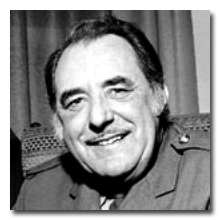
[1942]
Paroles et musique: Roland Lebrun
Testo e musica: Roland Lebrun
Paroles et musique: Roland Lebrun
Testo e musica: Roland Lebrun
Il quebecchese Roland Lebrun è passato alla storia come "Il soldato Lebrun" per le sue canzoni di ambito militare e bellico; negli anni della guerra, dal '42 al '45, vendette centinaia di migliaia di dischi. In realtà era un cantante country e, sui suoi oltre duecento titoli, solo 16 sono canzoni sui soldati; ma a queste rimane legato indissolubilmente il suo nome. Canzoni "contro la guerra" o "antimilitariste"? Tutt'altro. In quegli anni, le canzoni di Lebrun erano, anzi, canzoni di propaganda. Il soldato, insomma, fa il suo "dovere": va alla battaglia, attacca i "Boches" (i tedeschi), si becca le mitragliate mentre pensa alla famiglia ed è fiero che sia il suo turno di andare a crepare per la Patria. Ciononostante, le canzoni di Lebrun riflettono senz'altro quel che i soldati scrivevano e dicevano davvero alle famiglie, lasciado trasparire molto spesso l'esatto contrario. [RV]
Je t'écris ma femme adorée
(Continues)
(Continues)
Contributed by Riccardo Venturi 2014/1/28 - 18:56
Rachel
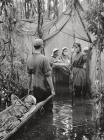
I grew up listening to this song. It was so powerful and still is.I was 15 when I first heard it. 18 years later when my wife and I had our first children, we had twin girls. We called one girl Rachel and the other Simone. I played this song for my Rachel as she grew up and told her about how she got her name, and about the song, the war the times that were. My daughter is now 26 and soon to be married. Rachel told me that she looked up the song and downloaded it to her collection. Whenever I hear this song it brings tears to my eyes.
2014/1/28 - 17:27
La complainte d'une mère

[1952]
Paroles et musique: Roland Lebrun
Testo e musica: Roland Lebrun
Paroles et musique: Roland Lebrun
Testo e musica: Roland Lebrun
Da Du Temps des Cerises aux Feuilles Mortes. Canzone degli anni '50, post-bellica, sospesa tra due temi più che classici: il dolore di una madre per il figlio in guerra e il "senso del dovere" (con l'immancabile eroismo). [RV]
Quelle douleur pour une pauvre mère
(Continues)
(Continues)
Contributed by Riccardo Venturi 2014/1/28 - 16:10
Arrange and Rearrange

[1997]
Parole e musica di Pete Seeger
Nell’album “At 89” del 2008.
“A volte i grandi cambiamenti si avverano con piccoli cambiamenti. Per esempio, quando tutti quei maniaci urlano ‘Crescere, crescere, crescere!’, noi al contrario possiamo scegliere di restare piccoli, di decrescere, di mangiare di meno, di bere di meno, di consumare di meno, persino di cagare di meno… Allora forse i bambini che oggi nascono avranno la possibilità e la speranza di vivere a lungo…”
Parole e musica di Pete Seeger
Nell’album “At 89” del 2008.
“A volte i grandi cambiamenti si avverano con piccoli cambiamenti. Per esempio, quando tutti quei maniaci urlano ‘Crescere, crescere, crescere!’, noi al contrario possiamo scegliere di restare piccoli, di decrescere, di mangiare di meno, di bere di meno, di consumare di meno, persino di cagare di meno… Allora forse i bambini che oggi nascono avranno la possibilità e la speranza di vivere a lungo…”
Early in the mornin’ I first see the sun,
(Continues)
(Continues)
Contributed by Bernart Bartleby 2014/1/28 - 15:16
And Tomorrow the Stock Exchange Be the Human Race

[1990]
Nell’album significativamente intitolato “Banking, Violence And The Inner Life Today”
In copertina un dipinto intitolato “Die Arbeitsmänner” (“I lavoratori”) dell’artista costruttivista tedesco Franz Wilhelm Seiwert (1894-1933).
“L’unica cosa sulla terra per cui vale la pena di morire è… il profitto!”
Praticamente L'Internationale ironicamente rovesciata.
Un album che è un bilancio dei lunghi anni del “thatcherismo” (1979-1990) e del suo funesto lascito. Un lavoro in ogni caso attualissimo, considerato che è già passato quasi un quarto di secolo dalla sua uscita e La Guerre de Cent mille ans che i ricchi fanno ai poveri dura tuttora, sempre più cruenta…
Nell’album significativamente intitolato “Banking, Violence And The Inner Life Today”
In copertina un dipinto intitolato “Die Arbeitsmänner” (“I lavoratori”) dell’artista costruttivista tedesco Franz Wilhelm Seiwert (1894-1933).
“L’unica cosa sulla terra per cui vale la pena di morire è… il profitto!”
Praticamente L'Internationale ironicamente rovesciata.
Un album che è un bilancio dei lunghi anni del “thatcherismo” (1979-1990) e del suo funesto lascito. Un lavoro in ogni caso attualissimo, considerato che è già passato quasi un quarto di secolo dalla sua uscita e La Guerre de Cent mille ans che i ricchi fanno ai poveri dura tuttora, sempre più cruenta…
Arise, the wealthy of the earth
(Continues)
(Continues)
Contributed by Bernart Bartleby 2014/1/28 - 13:45
Song Itineraries:
The War of Labour: Emigration, Immigration, Exploitation, Slavery
I'm on the Side of Mankind as Much as the Next Man

[1990]
Nell’album significativamente intitolato “Banking, Violence And The Inner Life Today”
In copertina un dipinto intitolato “Die Arbeitsmänner” (“I lavoratori”) dell’artista costruttivista tedesco Franz Wilhelm Seiwert (1894-1933), forse scelto dai McCarthy per il suo radicalismo oppure perché, morendo molto giovane nell’anno dell’avvento di Hitler al potere, ebbe così modo di scampare al nazismo e alla seconda guerra mondiale…
“Io sto dalla parte del genere umano, come chiunque, ma viene per tutti il momento di chiedersi se non valga invece la pena invece stare dalla parte del denaro… D’altra parte, mi piacerebbe valorizzare la vita umana ma se non c’è un margine di profitto chi me lo fa fare?...”
Un album che è un bilancio dei lunghi anni del “thatcherismo” (1979-1990) e del suo funesto lascito. Un lavoro in ogni caso attualissimo, considerato che la La Guerre de Cent mille ans che i ricchi fanno ai poveri dura tuttora ed, anzi, è sempre più cruenta…
Nell’album significativamente intitolato “Banking, Violence And The Inner Life Today”
In copertina un dipinto intitolato “Die Arbeitsmänner” (“I lavoratori”) dell’artista costruttivista tedesco Franz Wilhelm Seiwert (1894-1933), forse scelto dai McCarthy per il suo radicalismo oppure perché, morendo molto giovane nell’anno dell’avvento di Hitler al potere, ebbe così modo di scampare al nazismo e alla seconda guerra mondiale…
“Io sto dalla parte del genere umano, come chiunque, ma viene per tutti il momento di chiedersi se non valga invece la pena invece stare dalla parte del denaro… D’altra parte, mi piacerebbe valorizzare la vita umana ma se non c’è un margine di profitto chi me lo fa fare?...”
Un album che è un bilancio dei lunghi anni del “thatcherismo” (1979-1990) e del suo funesto lascito. Un lavoro in ogni caso attualissimo, considerato che la La Guerre de Cent mille ans che i ricchi fanno ai poveri dura tuttora ed, anzi, è sempre più cruenta…
Long live free enterprise!
(Continues)
(Continues)
Contributed by Bernart Bartleby 2014/1/28 - 13:27
Trayvon
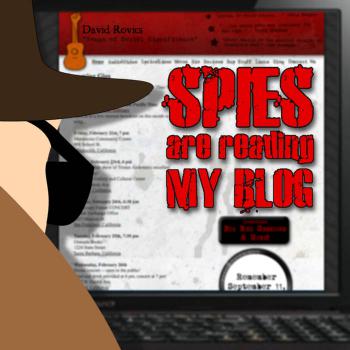
2013 Spies are reading my blog
Canzoni dedicate a Trayvon Martin:
Trayvon Jasiri X
Justice! Godswill
We Are Trayvon Plies
Trayvon Martin Tribute Papoose
Super Life Chaka Khan
Hoodiez Willie D
I wonder why Rick Ross
The Ballad of Trayvon Martin Will Hoge
Justice (if You're 17) Wyclef Jean
No More Innocent People Dying Kamal Imani
Trayvon David Rovics
Sandra's Smile Blood Orange
Call It What It Is Ben Harper
Angel Down Lady Gaga
Sad News Swizz Beat
Black America Again Common
Trayvon Martin era un ragazzo afroamericano di 17 anni.
Il 26 febbraio 2012, mentre passeggiava verso le 19 in una strada di Sanford, Florida, era stato segnalato alla polizia come sospetto da George Zimmerman, un membro di un gruppo di vigilantes della zona chiamato Neighborhood Watch. Zimmerman aveva ritenuto di segnalare la presenza di Martin perché questi si muoveva in modo, a suo dire, sospetto... (Continues)
Canzoni dedicate a Trayvon Martin:
Trayvon Jasiri X
Justice! Godswill
We Are Trayvon Plies
Trayvon Martin Tribute Papoose
Super Life Chaka Khan
Hoodiez Willie D
I wonder why Rick Ross
The Ballad of Trayvon Martin Will Hoge
Justice (if You're 17) Wyclef Jean
No More Innocent People Dying Kamal Imani
Trayvon David Rovics
Sandra's Smile Blood Orange
Call It What It Is Ben Harper
Angel Down Lady Gaga
Sad News Swizz Beat
Black America Again Common
Trayvon Martin era un ragazzo afroamericano di 17 anni.
Il 26 febbraio 2012, mentre passeggiava verso le 19 in una strada di Sanford, Florida, era stato segnalato alla polizia come sospetto da George Zimmerman, un membro di un gruppo di vigilantes della zona chiamato Neighborhood Watch. Zimmerman aveva ritenuto di segnalare la presenza di Martin perché questi si muoveva in modo, a suo dire, sospetto... (Continues)
A boy went to visit his father out of town
(Continues)
(Continues)
Contributed by donquijote82 2014/1/28 - 12:08
Song Itineraries:
Racism and Slavery in the USA
Where Have all the Flowers Gone
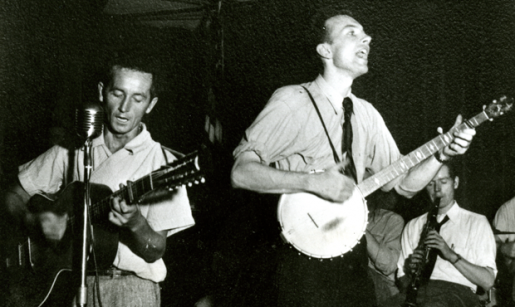
La muerte no acaba nada
La raccolta delle "Canzoni contro la guerra", quella originale del gennaio e febbraio 2003, era iniziata da cinque minuti e lui già c'era, Pete. Dopo la prima canzone, il Disertore, subito lui. "Where have all the flowers gone" è la canzone numero 2 di tutto il sito. Non si poteva neppure pensare di cominciare a fare una cosa del genere senza Pete Seeger; e così è stato, tutti i giorni. Ogni volta che si apriva il sito, almeno un accenno del suo banjo c'era sempre; e continuerà ad esserci. "La muerte no acaba nada", anche se da oggi, seriamente, siamo tutti un po' più soli.
La raccolta delle "Canzoni contro la guerra", quella originale del gennaio e febbraio 2003, era iniziata da cinque minuti e lui già c'era, Pete. Dopo la prima canzone, il Disertore, subito lui. "Where have all the flowers gone" è la canzone numero 2 di tutto il sito. Non si poteva neppure pensare di cominciare a fare una cosa del genere senza Pete Seeger; e così è stato, tutti i giorni. Ogni volta che si apriva il sito, almeno un accenno del suo banjo c'era sempre; e continuerà ad esserci. "La muerte no acaba nada", anche se da oggi, seriamente, siamo tutti un po' più soli.
Riccardo Venturi 2014/1/28 - 11:36
John Brown
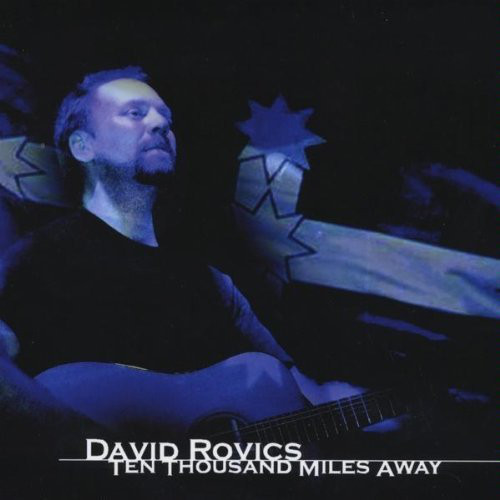
2009
Ten Thousand Miles Away
Ten Thousand Miles Away
John Brown (Torrington, 9 maggio 1800 – Charles Town, 2 dicembre 1859) è stato un attivista statunitense, simbolo della causa antischiavista cui si dedicò anche mediante la lotta armata e per cui pagò con la vita. Egli fu infatti impiccato in seguito al fallito assalto all'arsenale federale di Harper's Ferry con le cui armi voleva dare il via ad una rivolta grazie al sostegno degli schiavi nelle contee occidentali dello Stato della Virginia.
La canzone John Brown's Body, di cui esiste anche una versione italiana, fece di lui un eroico martire della causa nordista. Essa perciò, adottata come canzone di battaglia dell'Unione durante la Guerra Civile Americana, divenne popolare.
La canzone John Brown's Body, di cui esiste anche una versione italiana, fece di lui un eroico martire della causa nordista. Essa perciò, adottata come canzone di battaglia dell'Unione durante la Guerra Civile Americana, divenne popolare.
Owen Brown was an abolitionist
(Continues)
(Continues)
Contributed by donquijote82 2014/1/28 - 11:29
Song Itineraries:
Racism and Slavery in the USA
×
![]()



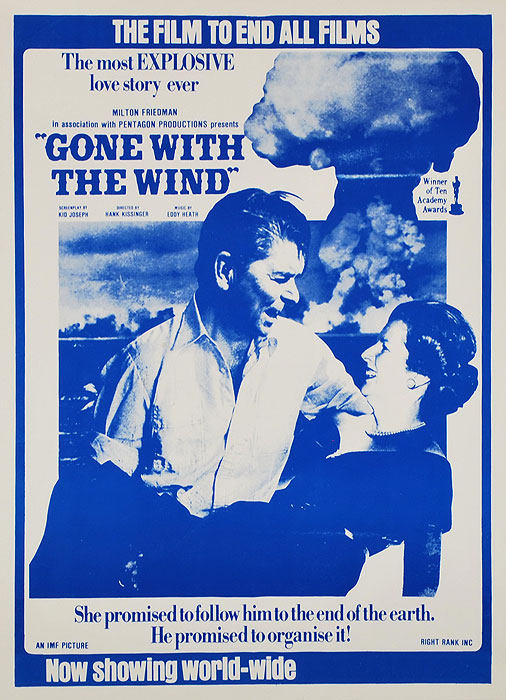

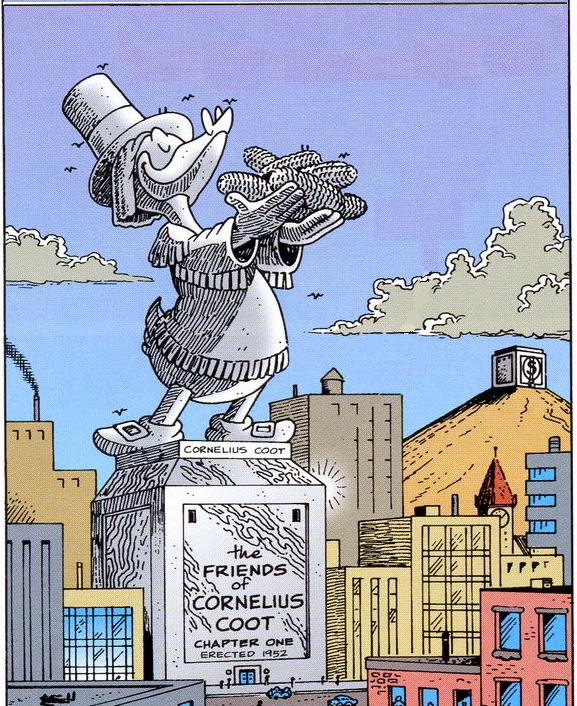

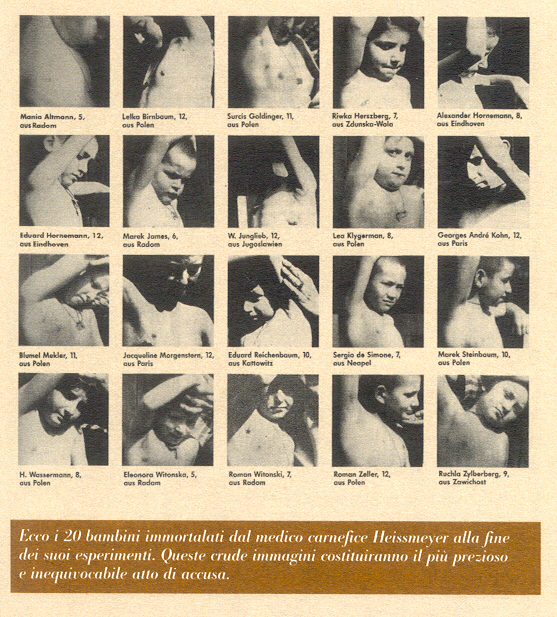

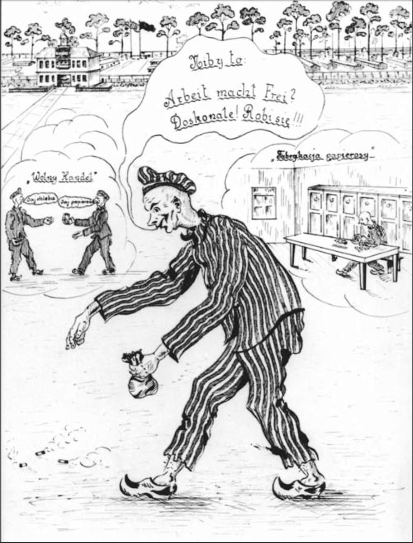
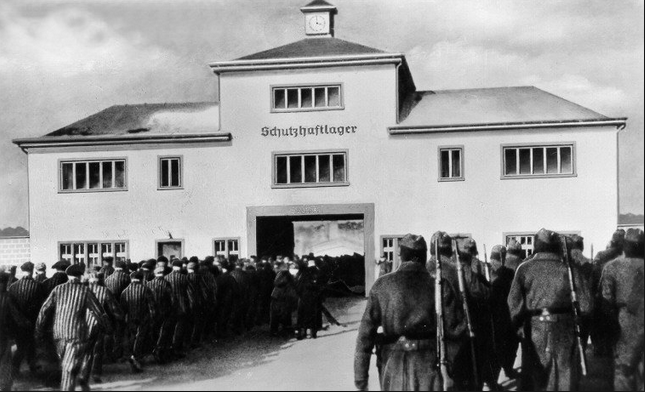
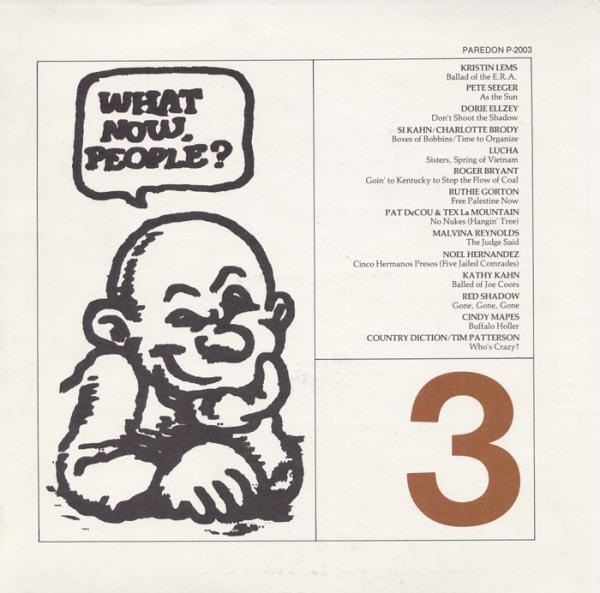
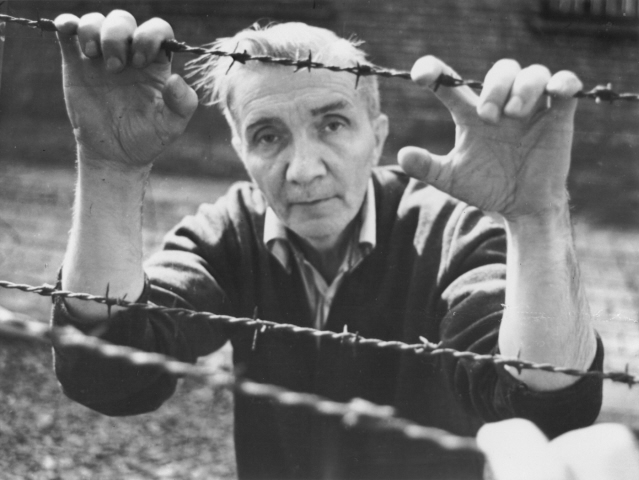
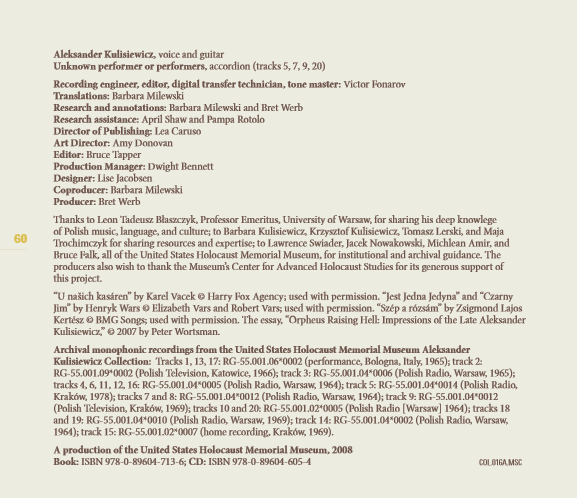
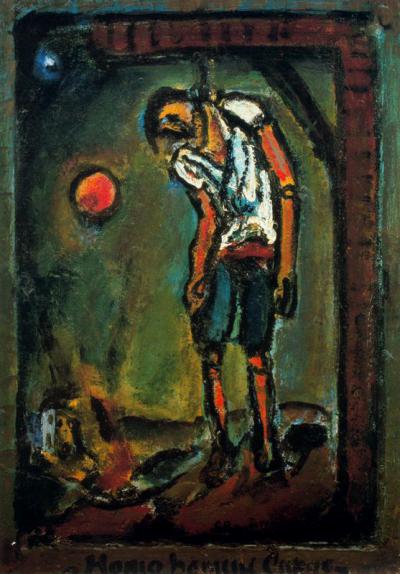
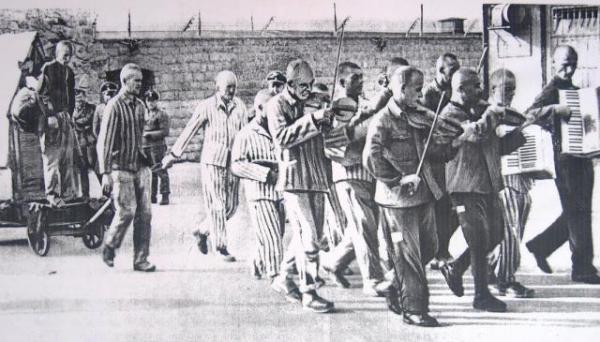
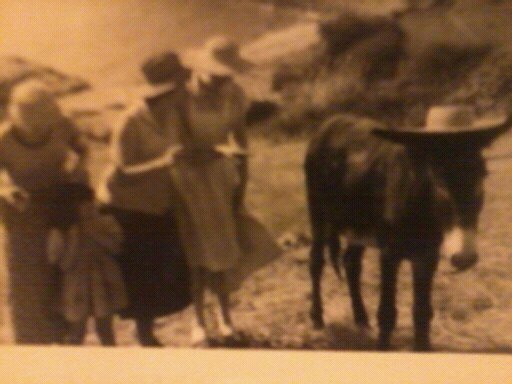

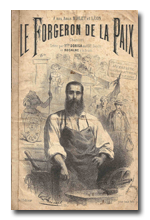
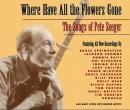
Testo: Віктор Бронюк
Musica: ТІК
Testo pescato qui http://www.pisni.org.ua/
Sito ufficiale http://tik.ua